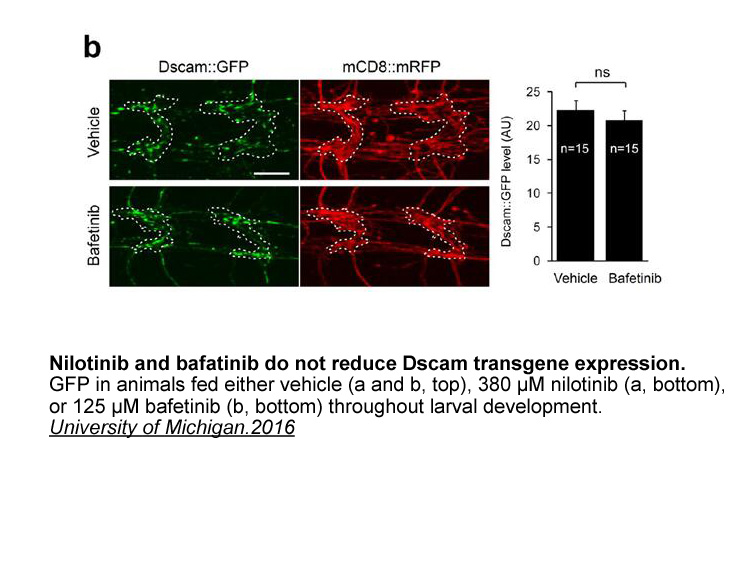Archives
FR 180204 br Introduction Several studies have found that hy
Introduction
Several studies have found that hypothalamic Akt-mediated signaling pathways play critical roles in the regulation of food intake and FR 180204 metabolism in mammals [[1], [2], [3], [4], [5], [6]]. Central injections of the inhibitor of phosphoinositide 3- kinases (PI3 K, an upstream regulator of Akt phosphorylation) prevent insulin-induced anorexia and weight loss [7]. Similarly, intracerebroventricular (ICV) administrations of rapamycin, inhibitor of the mechanistic target of rapamycin (mTOR), blocks insulin-, leucine-, or leptin-induced suppression of food intake and body weight changes in rodents [[3], [6]], and refeeding increases phosphorylation of mTOR downstream factors (S6K1 and S6) in the arcuate and paraventricular nuclei of rats [3]. The injection of adenovirus expressing constitutively active S6K1 to the mediobasal hypothalami of rats decreased the expression of orexigenic neuropeptides, such as neuropeptide Y (NPY), and agouti-related peptides (AgRP) [8]. In vivo studies in mice revealed that the inhibition of forkhead box-containing proteins of the O family 1 (FOXO1, which is phosphorylated and inactivated by Akt) in the hypothalamus decreased food intake and body weight, whereas its activation increased both [4]. In addition, in vitro and in vivo studies showed that FOXO1 stimulated the transcription of NPY and AgRP, but suppressed that of proopiomelanocortin (POMC, the precursor of alpha-melanocyte stimulating hormone, an anorexigenic peptide) [[4], [5]]. All these findings suggest that hypothalamic Akt-mediated signaling pathways including the Akt/FOXO1 and Akt/mTOR pathways are important for regulating food intake by modulating the expression of neuropeptides in mammals.
Insulin is known to be a primary hormone for regulating glucose, lipid, and protein metabolism through the activation of various signaling pathways, including Akt signaling, in peripheral tissues (e.g. adipose tissue, liver, and muscle). Additionally, the central action of insulin has been documented in mammals over the past two decades. For example, mice with a neuron-specific disruption of the insulin receptor gene developed diet-sensitive obesity with increases in body fat and the plasma levels of triglycerides, leptin, and ins ulin [9]. Central and peripheral administration of insulin suppressed food intake in diabetic rats [[10], [11], [12]]. Intracerebroventricular administration of insulin decreases NPY expression and increases POMC in rats [[10], [11]]. In addition, intraperitoneal administration of insulin enhanced phosphorylated Akt content in the mediobasal hypothalami of rats [7]. These findings indicate that insulin regulates the expression of appetite-related neuropeptides through Akt-mediated signaling resulting in the inhibition of food intake in mammals.
Similarly, insulin acts as an anorexigenic hormone in chickens. Central or peripheral administration of insulin is reported to suppress food intake [[13], [14], [15], [16], [17], [18]]. Past immunohistochemical studies have shown that the insulin receptor is expressed in the chicken hypothalamus and co-localized with α-MSH and NPY in the infundibular nuclei [19]. In addition, central insulin injections increased POMC expression, but decreased NPY expression [[13], [15]]. However, it remains unclear whether the hypothalamic Akt-mediated signaling pathway contributes to the regulation of food intake in chickens. In addition, it is unclear whether hypothalamic Akt-mediated signaling responds to insulin and feeding conditions in chicken, because the regulation of Akt phosphorylation is markedly different depending on the tissues in chickens. For example, in chicken liver and skeletal muscle, Akt phosphorylation is significantly increased upon refeeding and injecting with insulin [[20], [21]], while conversely, it is significantly decreased upon fasting and injecting with anti-insulin serum [22]. Interestingly, no significant change is observed in Akt phosphorylation in chicken adipose tissue after fasting and injecting with anti-insulin serum [23]. Thus, it is necessary to examine whether hypothalamic Akt-mediated signaling is regulated by insulin injection and refeeding in chicks.
ulin [9]. Central and peripheral administration of insulin suppressed food intake in diabetic rats [[10], [11], [12]]. Intracerebroventricular administration of insulin decreases NPY expression and increases POMC in rats [[10], [11]]. In addition, intraperitoneal administration of insulin enhanced phosphorylated Akt content in the mediobasal hypothalami of rats [7]. These findings indicate that insulin regulates the expression of appetite-related neuropeptides through Akt-mediated signaling resulting in the inhibition of food intake in mammals.
Similarly, insulin acts as an anorexigenic hormone in chickens. Central or peripheral administration of insulin is reported to suppress food intake [[13], [14], [15], [16], [17], [18]]. Past immunohistochemical studies have shown that the insulin receptor is expressed in the chicken hypothalamus and co-localized with α-MSH and NPY in the infundibular nuclei [19]. In addition, central insulin injections increased POMC expression, but decreased NPY expression [[13], [15]]. However, it remains unclear whether the hypothalamic Akt-mediated signaling pathway contributes to the regulation of food intake in chickens. In addition, it is unclear whether hypothalamic Akt-mediated signaling responds to insulin and feeding conditions in chicken, because the regulation of Akt phosphorylation is markedly different depending on the tissues in chickens. For example, in chicken liver and skeletal muscle, Akt phosphorylation is significantly increased upon refeeding and injecting with insulin [[20], [21]], while conversely, it is significantly decreased upon fasting and injecting with anti-insulin serum [22]. Interestingly, no significant change is observed in Akt phosphorylation in chicken adipose tissue after fasting and injecting with anti-insulin serum [23]. Thus, it is necessary to examine whether hypothalamic Akt-mediated signaling is regulated by insulin injection and refeeding in chicks.